Waking the Wind Fish
Finding the courage to let go
I’ve been thinking a lot about “threshold moments” - how we carry our pasts with us, and what we choose to leave behind as we step into a New Year.
That brought to mind a major family transition many moons ago, when my parents decided to move back to the US after a decade in Uganda, Africa, where I grew up.
I don’t remember much from that move. Just bits and pieces… Like how my brother’s “carryon” backpack was so heavy that he fell backwards at the airport.
Or meeting the pilot, touring the cockpit, and gazing out over an ocean of clouds.
Or driving past all of the big American houses, marveling that you could just walk up to someone’s door... There were no walls around them, like the wall that had been built around our house on the outskirts of a Kampala slum:
While sorting through old keepsakes, I rediscovered a drawing I did shortly after returning stateside. The “style” and handwriting were mine, but I have no memory of making it. It shows a flag rent in two... One half is the Ugandan flag, and the other half is the American flag. A stick figure stands caught in the middle, spewing blood.
It’s a violent and disturbing image.
Thinking back, there really is a “gap” in my memory from back then. Everything between leaving Uganda and starting eighth grade at a tiny Christian school in the middle of Pennsylvania - where my Earth Sciences teacher insisted that the planet is, in fact, a mere ten thousand years old - exists as a sort of murky blur.
What swims out of that mental fog is Link’s Awakening, a classic Nintendo experience that found its way to me when I needed it most. I spent many evenings immersed in The Legend of Zelda, peering at the tiny screen of my Gameboy Color. It had a considerable impact on my childhood, on some level helping me transition to life in a new country. The game’s story continues to resonate today - so much so that I almost named this Substack “Waking the Wind Fish”, after one of its key characters.
Link’s Awakening tells a story about impossible decisions.
About dreams, and memory, and the power of letting go... Themes that, as we launch into a New Year, invite us to reflect on the direction of our lives.
Broadly speaking, videogames intrigue me with their unique storytelling potential. As legendary film director Robert Bresson argues in Notes on the Cinematographer, a creative medium should embrace its strengths. “The truth of cinema cannot be the truth of theatre, nor the truth of the novel, nor the truth of painting,” he argues:
“It is in its pure form that an art hits hard.”
Of course, as writers and filmmakers, there is inspiration to be found in studying other creative mediums in their “pure forms”… Think Caravaggio’s influence on Martin Scorsese, Francis Bacon’s influence on Christopher Nolan, or Edward Hopper’s influence on one of my favorite cinematographers, Conrad Hall, to name but a few.
Videogames are a newer art form, and so far, the inspiration has been flowing mostly in one direction, from movies to games - but that is starting to change. Series like HBO’s The Last of Us and Netflix’s Arcane are wildly successful adaptations of games that figured out how to tell compelling linear stories, leaning into cinema’s strengths.
This is a topic for another day, but briefly, what sets videogames apart is their interactive nature. The player becomes an active participant in the story, which helps to build empathy and narrative investment.
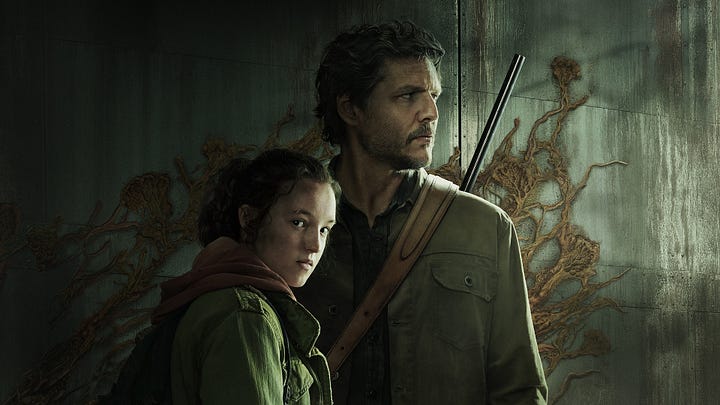
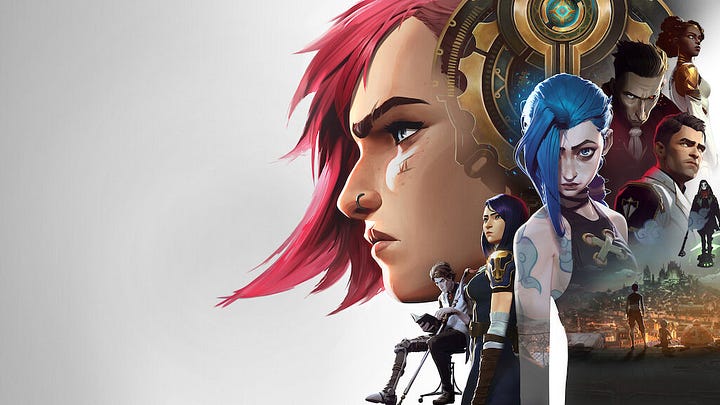
In my case, as we’ll see, assuming the role of Link helped me accept my new reality, working subconsciously (as much art does) to open me up to a new chapter in the US.
Like a film, a game begins with an idea that grows through the creative process.
Link’s Awakening is unusual in that it sprang to life as an unsanctioned side project. Its early, free-form development period took Nintendo’s team to some interesting places... They channeled the spirit of David Lynch’s surreal TV show, Twin Peaks, and leaned hard into the romantic vision of Yoshiaki Koizumi, the game’s lead writer. As a result, Link’s Awakening actually became the first Zelda game with a proper plot!
The story kicks off with our hero, Link, caught in a terrible storm:
He gets shipwrecked on the mysterious Koholint Island.
Marin, one of Koholint’s inhabitants, finds Link washed ashore and nurses him back to health. She’s a gifted musician, kind and curious, fascinated by the outside world.
The two grow close, but Link’s keenly aware that he doesn’t belong. He learns that he must wake up The Wind Fish - Koholint’s guardian, dreaming in a giant egg high atop Mount Tamaranch - if he is to return home. So Link sets out to find the Instruments of the Sirens, which when played together, will rouse The Wind Fish from its slumber.
The player, as Link, braves Koholint’s wilderness, delving deep into dangerous dungeons to recover the instruments. Clues Link finds along the way suggest that all may not be as it seems, but he persists through his fear of the unknown.
Toward the end of the game, Link spends an afternoon with Marin. They relax on the beach together. “Tarin says there is nothing beyond the sea,” Marin muses. “But I believe there must be something over there…” The sound of the waves fills the space between them. “When I discovered you, Link, my heart skipped a beat. I thought, this person has come to give us a message.” Her gaze takes in the ocean, wistful:
“If I was a seagull, I would fly as far as I could! I’d fly to faraway places and sing for many people! If I wish to The Wind Fish, I wonder if my dream will come true.”
If only she knew…
As it turns out, Link is indeed a sort of “messenger”.
He’s confronted with a terrible truth about Marin’s world.
Here, I’m reminded of Interstellar, which we watched and broke down together in real-time during our first-ever Movie Club event. It’s a morally serious film that grapples with the weight of destiny, loss, and trajectory-changing choices… How so often in life, we have to make difficult decisions without seeing the whole picture.
At its core, Interstellar is a story about someone crossing a threshold - “someone walking through a door that locks behind them,” in film critic Lauren Wilford’s words:
It's about the things you can't take back. Becoming prepared for the moment, and then realizing that nothing could have prepared you, not really.
There's no way you could have known, and you had to choose anyway. It's about the way that a sense of destiny might kill you - but that it might save you, too.
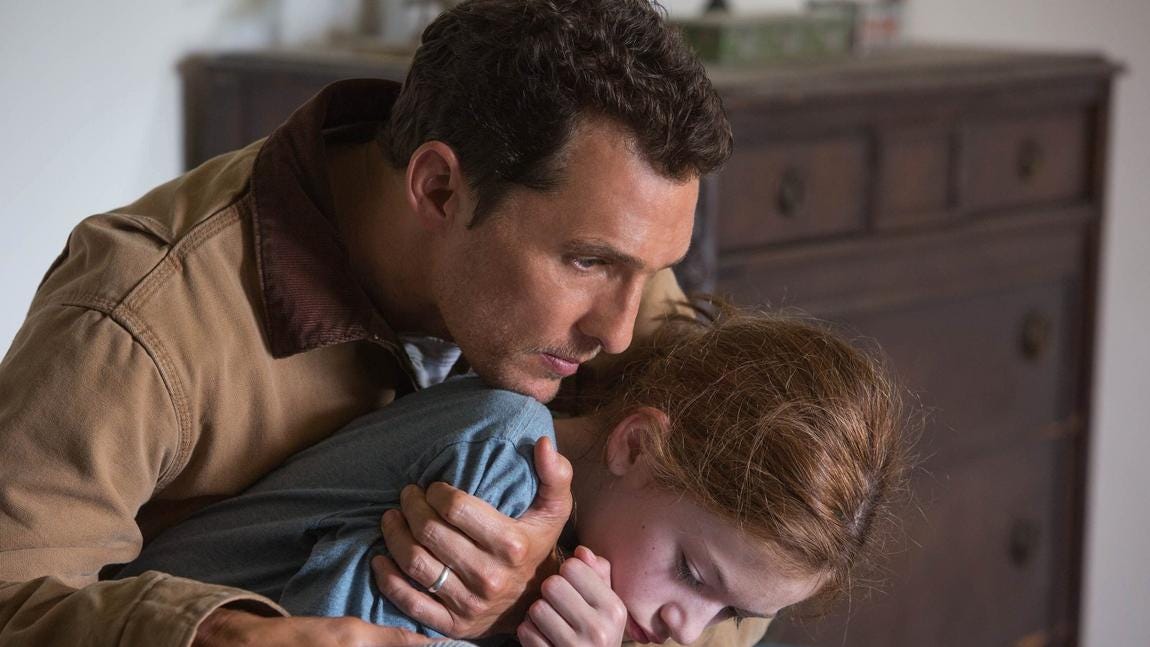
[Spoiler alert] “The moment” for Link comes when he pieces together that all of Koholint exists only in the dream of The Wind Fish. If he wakes up The Wind Fish to return home, thus completing his quest, then Link will make the island and everything on it, including Marin, cease to be. Koholint is undeniably beautiful - his connection with Marin, real and rare - but it is ephemeral.
Literally the fabrication of a dream.
I remember this moment in the game so clearly.
It’s where Link’s Awakening, too, reveals itself to be a story about “someone walking through a door that locks behind them.” Waking The Wind Fish means letting go of a place, and a person, that Link has grown to love. But staying on the island, even if only for Marin’s sake, would mean embracing an illusion and rejecting his own reality.
Marin’s aware of this on some level, too.
She helps Link to the very end, and her desire to leave Koholint suggests a subconscious awareness of the island’s transient nature.
Still, nothing could have prepared Link for such a shattering revelation. There’s no way he could have known, but he must choose anyway… It is irrevocably Link’s “threshold moment”, with consequences that can’t be undone.
Ultimately, Link accepts that the beauty of Koholint Island is fleeting - that his relationship with Marin is but a moment in time - and that he must leave both behind, in order to fulfill his destiny. So he chooses to let them go.
In a sense, this decision honors Marin’s desire for freedom as much as Link’s own, since her “spirit” might then soar somewhere beyond Koholint. The cost of their transcendence - of freedom, of growth - is their separation.
An uncertain future.
But as The Wind Fish puts it: “It be the nature of dreams to end.”
Resolved, Link collects the instruments and defeats a nightmarish enemy. He rouses the Wind Fish by playing a ballad Marin herself taught him, and in the story’s bittersweet climax, the island and its inhabitants disappear.
Link awakens to find himself stranded in the middle of the ocean. He clings to a piece of driftwood from his ship, while overhead, Marin takes to the skies as a seagull - whether literally or in Link’s imagination, it’s impossible to say.
So did any of it happen? Was Link actually shipwrecked?
“Someday, thou may recall this island,” The Wind Fish counsels. “That memory makes the dream world real.” In one form or another, then, Marin and Koholint live on.
Our memories make us who we are.
They shape our beliefs and thus our realities.
Link’s “sense of destiny” does indeed kill a part of him in the story, by forcing a choice that comes at a terrible cost. Imagine his regret, doing what he felt he had to do every step of the way, only for the outcome to be beyond his control.
But that same sense of destiny also saves him.
He accepts the loss and moves forward, understanding that the value of a dream lies not in its permanence, but in its impact. Sometimes, you have to let things go... Places, people, and pursuits you hoped would be a part of your life forever turn out to be catalysts only, coming and going. But that doesn’t make them any less valuable.
Letting go isn’t about giving up. It’s about making space for something new.
Link’s journey reminds us that holding onto something too tightly can keep us trapped in a dream, when life is calling us to wake up.
It’s an insight that requires a great deal of courage to embrace, and one that the universe beat into me last year as I faced difficult decisions about the places, people, and pursuits I’d been clinging to - just as it had done when I was struggling to accept my new life in America as a teenager, many moons ago.
Sometimes, you have to learn a lesson twice.
To help prevent against the possibility of having to learn it a third time, I decided to pull the trigger on something I’ve been meaning to do for more than a decade.
I got my very first tattoo here in Pokhara, Nepal:
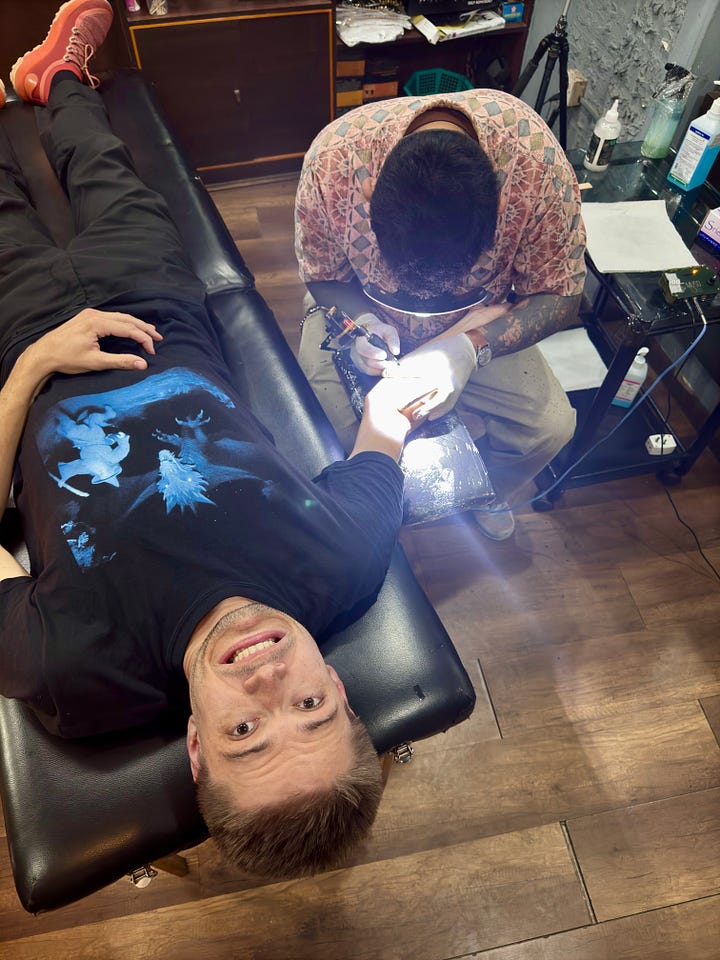
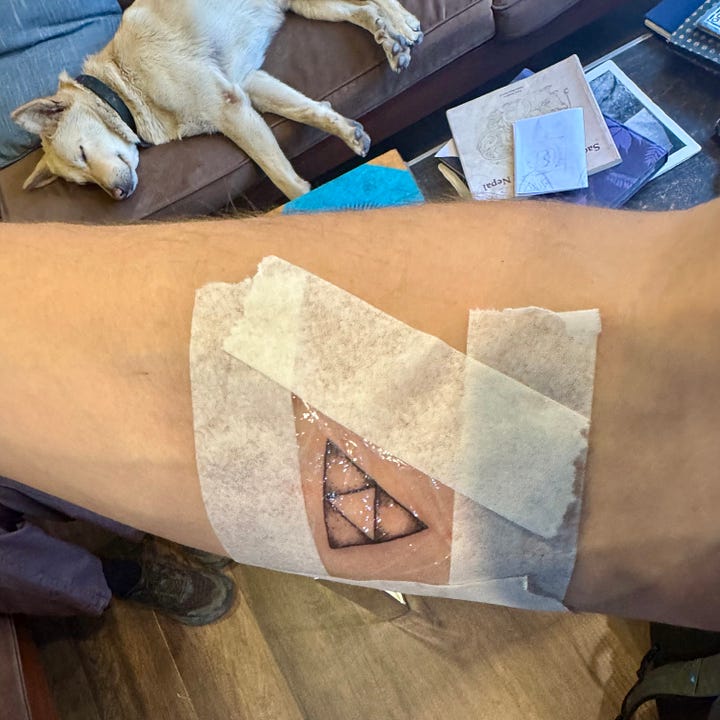
This is the Triforce, a relic and symbol in The Legend of Zelda series. In many Zelda games, obtaining the three pieces of the Triforce plays an important role in the story, since they stand for the three virtues that Link needs in order to succeed in his quest:
Wisdom, power, and courage.
Wisdom without power is impotent. Power without wisdom is corrupted. So courage is the key to finding the other virtues, bringing all three into balance. It’s a reminder to embrace change, even when it comes at a cost, and to move forward with purpose.
As the New Year kicks off, perhaps it’s a good time to ask ourselves:
What’s worth letting go of in our lives? What “dreams”, what illusions are we holding onto that might be preventing us from fulfilling our potentials?
How do we carry our pasts with us, and what might we choose to leave behind?
“You can make a choice in the present that suddenly changes the next twenty years,” Wilford counsels in her Interstellar musings. “But you can also make a choice in the present that changes the tenor of the last twenty years… Things can go wrong, very wrong, for years, but somehow be made right in the fullness of time.”
Wishing you the wisdom to see clearly, the power to take action, and the courage to let go, as you navigate your own threshold moments onward into the unknown.
New adventures await!
If you’re navigating a creative pivot and want a focused 1:1 conversation, I offer free storytelling consults. We talk projects, direction, & how to shape your next chapter.



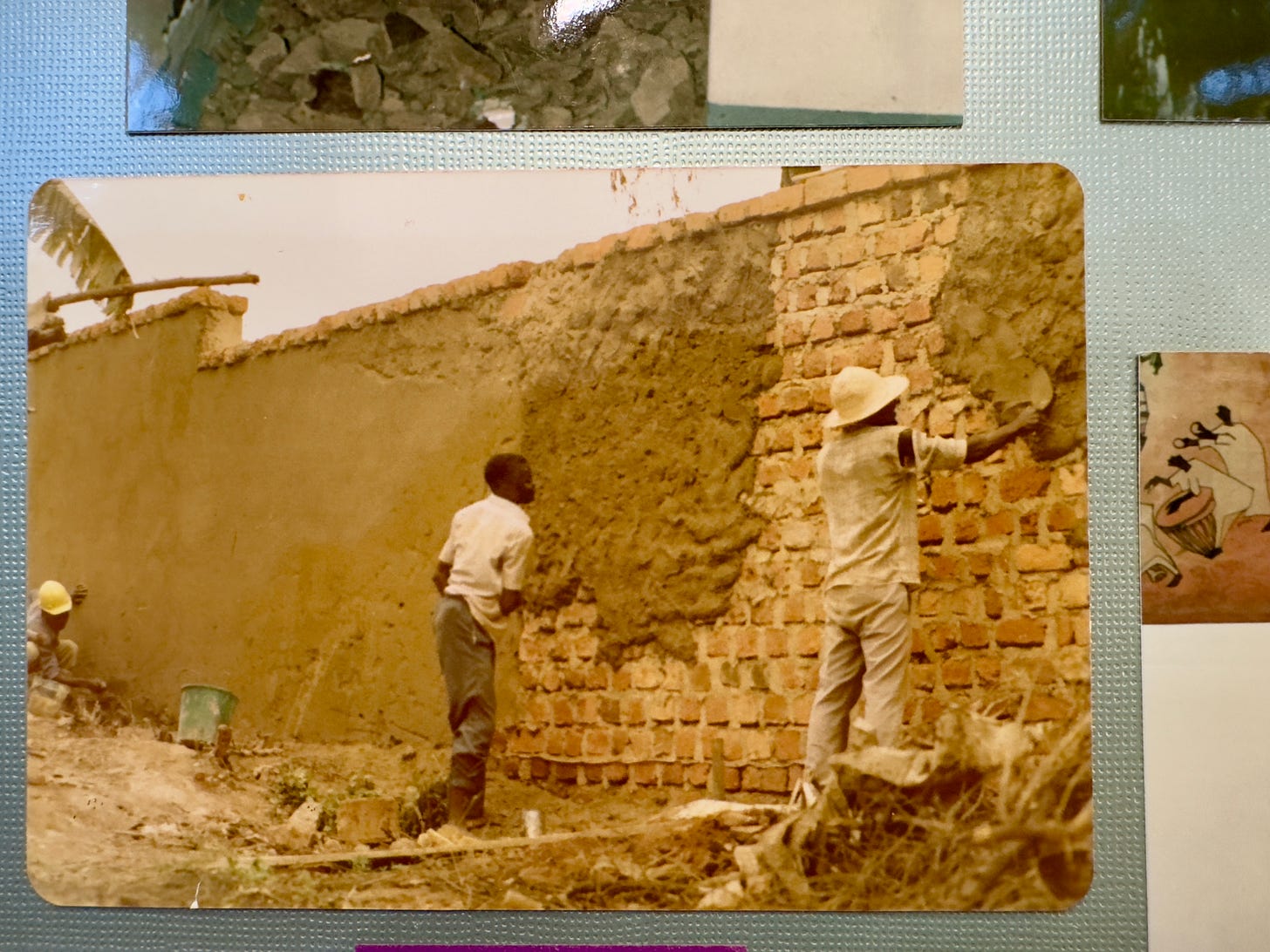

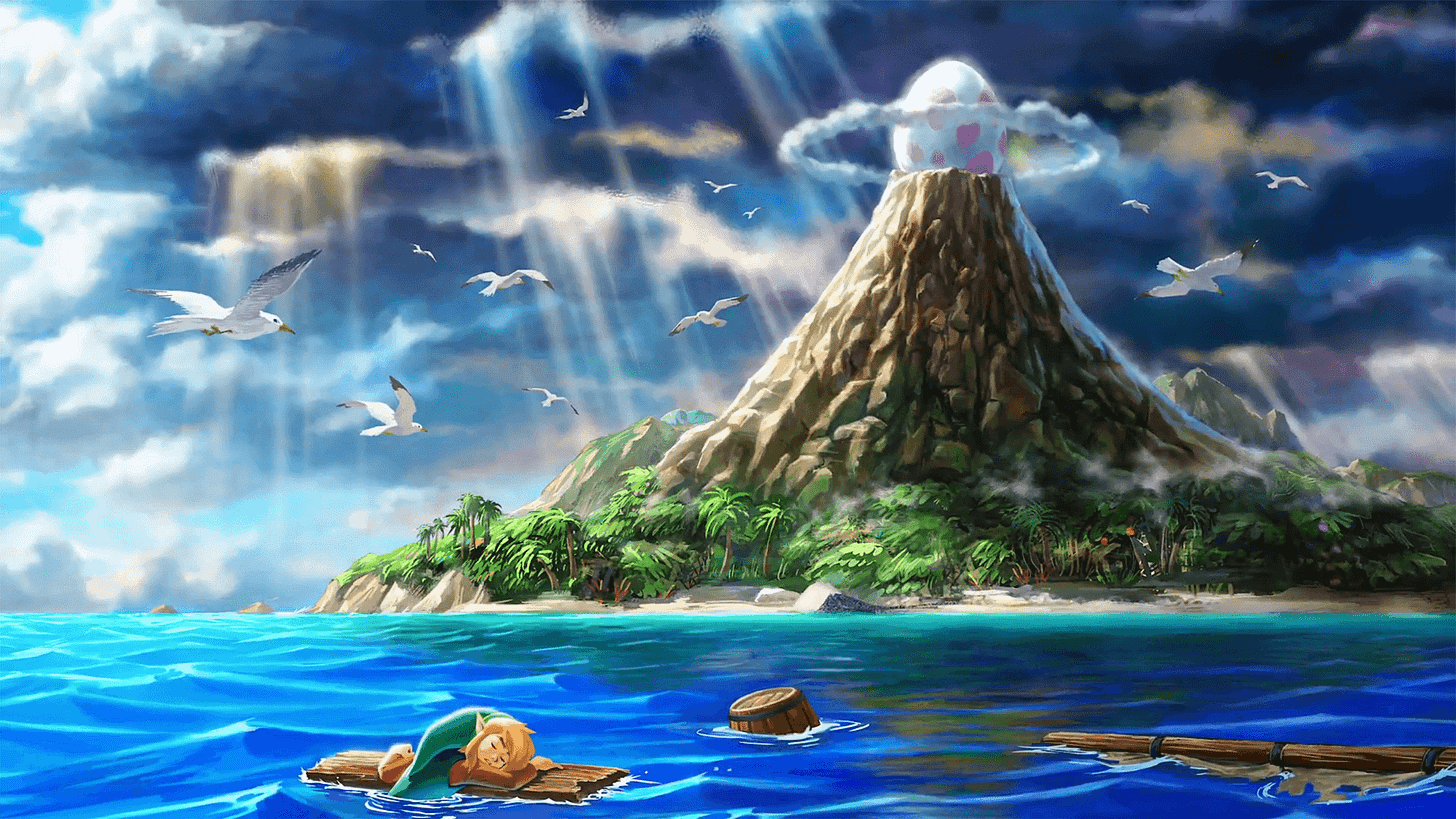

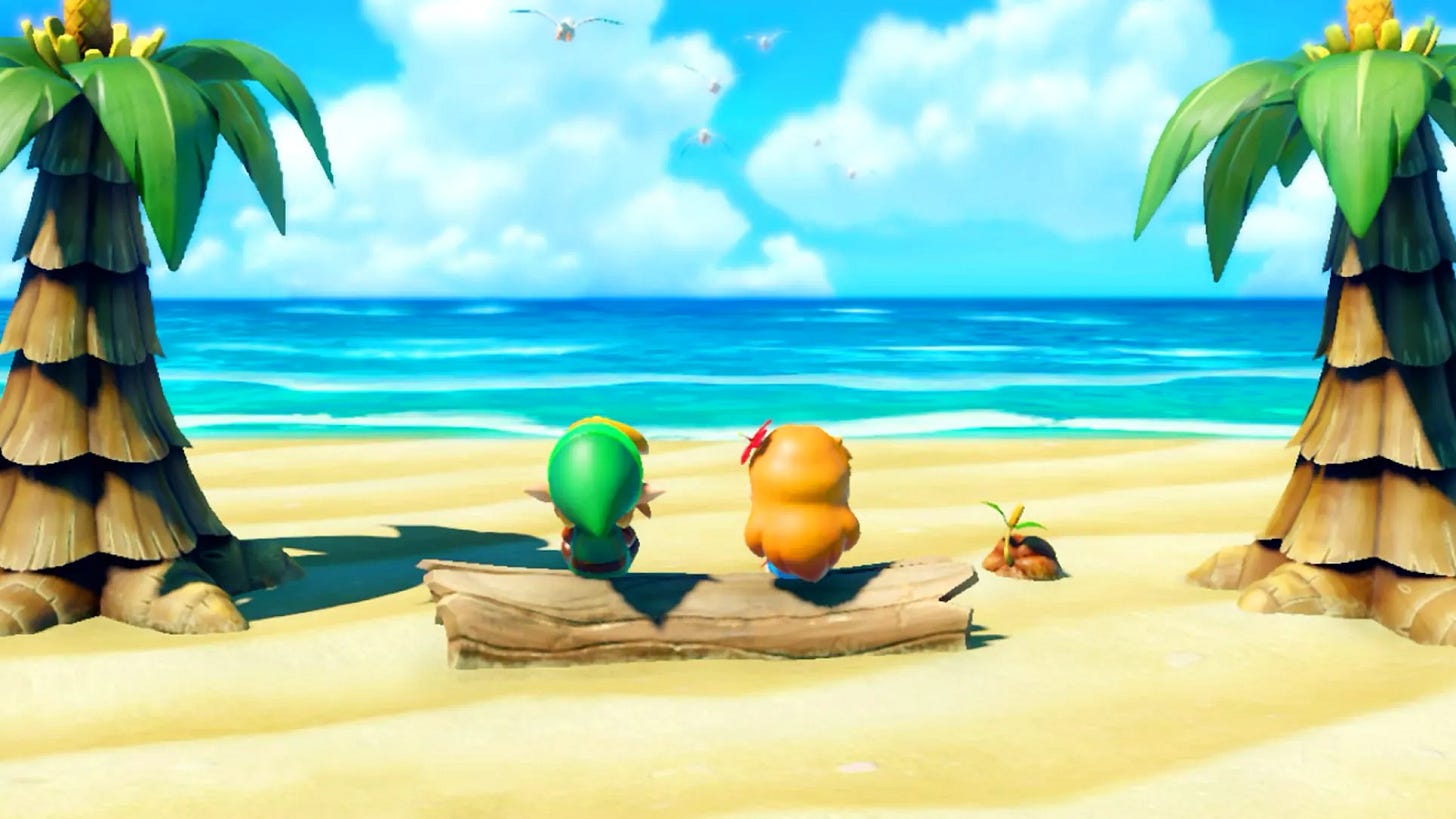


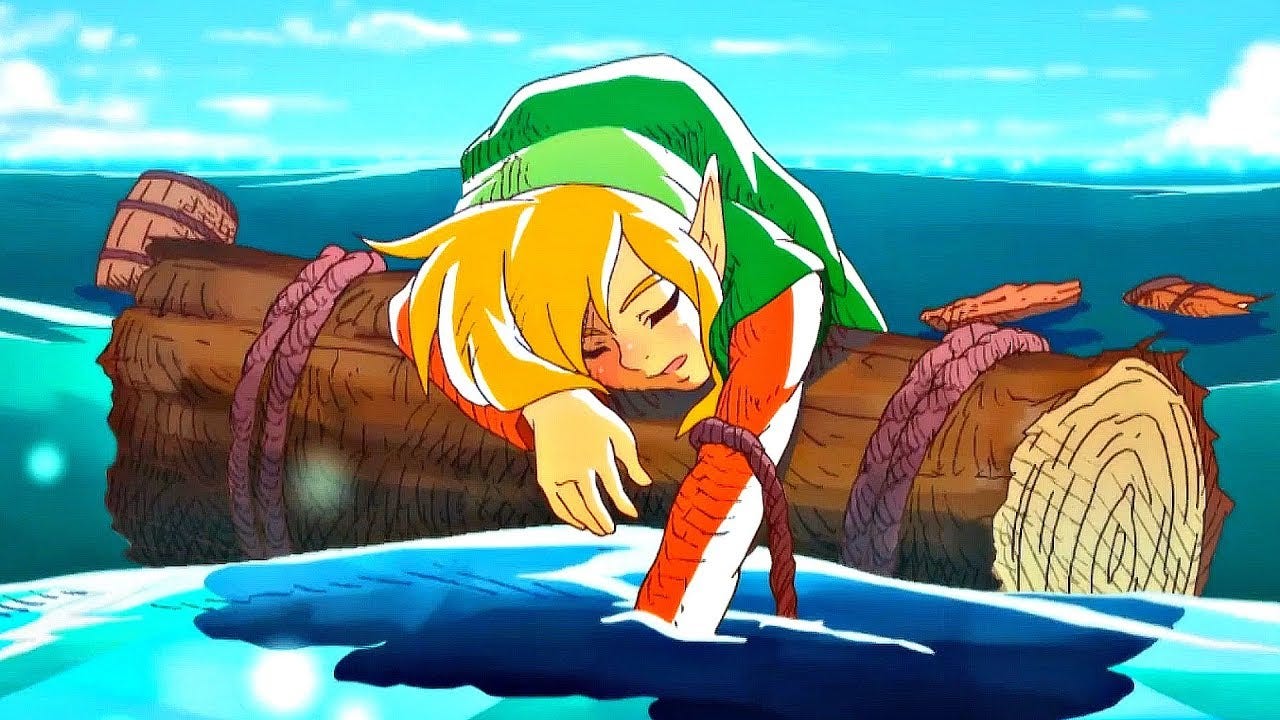





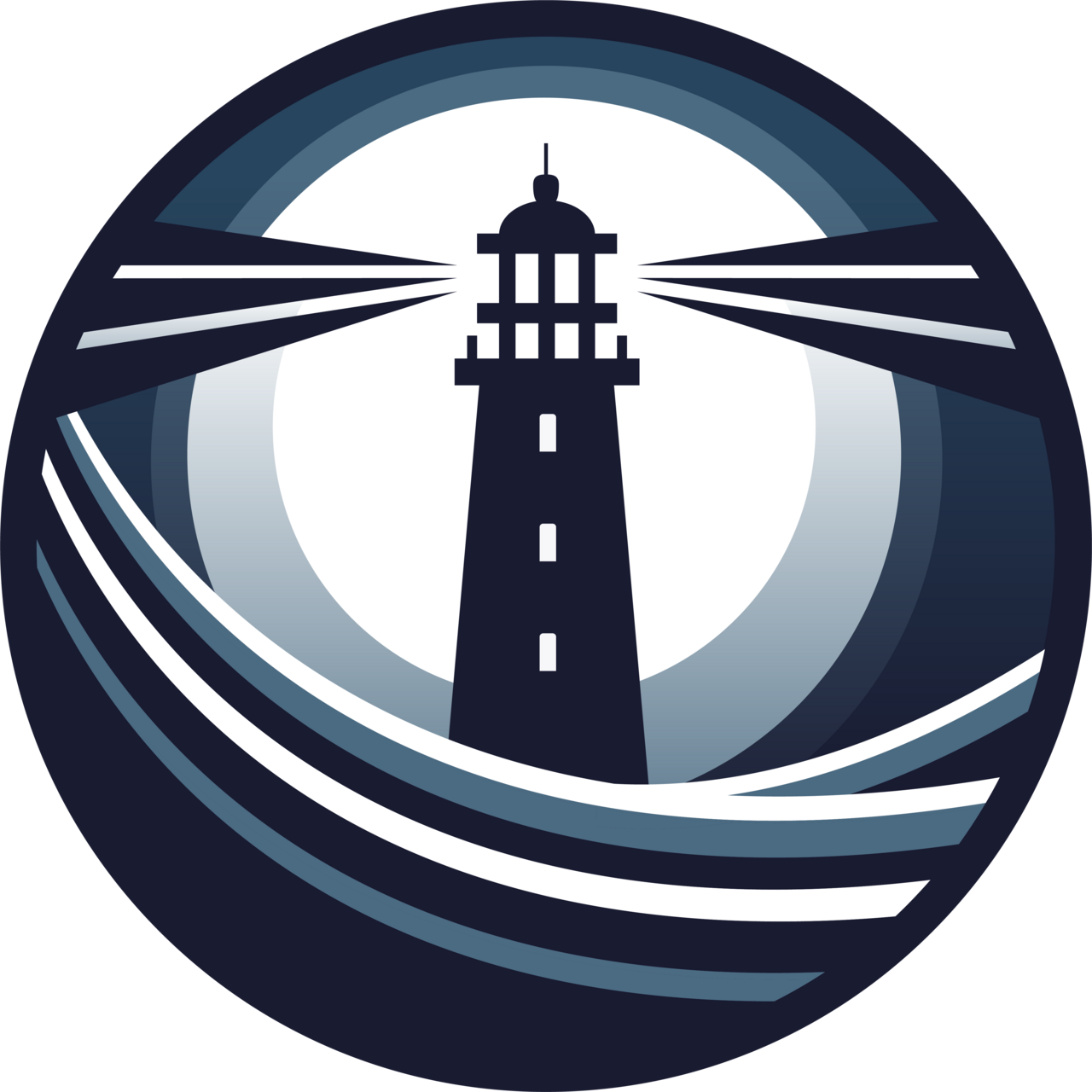
I love the story, something I can relate to with my own threshold moments. Also first tattoo! Congrats I have two, first one was def the scariest but actually in a very similar spirit as yours.
I really want to read more about the Mike that drew that picture and what he was thinking.